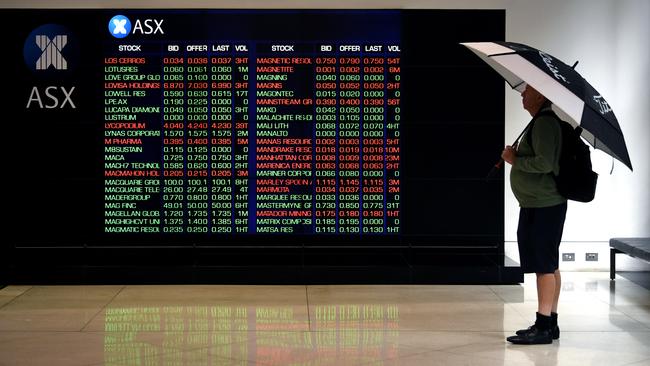From Wagga Wagga to the world, widen your share horizon

I tried electrical engineering, software development, management consulting, and in-house corporate strategy. I worked across businesses both large and small, and both domestic and international.
I learnt that running a business is hard.
Yet, I also learnt that talented leaders and operators, given resources, could achieve extraordinary results for shareholders when incentives were aligned.
Today, I am reminded of businesses like Meta – where Mark Zuckerberg remains fully committed to evolving his business for our new AI-enhanced world, and fully invested in his company’s equity at the same time. Or KKR, where the firm’s talented deal-makers own around 30 per cent of the company’s shares.
The wide variety of early experiences was so rich with lessons that I decided to become an investor. My theory was that I had so much to learn – and only as an investor would I have the opportunity to continually extend across the many dimensions of business to uncover these lessons.
Why shares?
After deciding to become an investor, I then realised the powerful difference between being a lender (fixed income) and an owner (equities), which led me to focus on equities rather than fixed income.
As a student of business and finance, I had studied equity markets, of course – but I also studied debt markets. Debt, or fixed income, markets are much larger than equity markets, and I found them intellectually fascinating. But fixed income is very different to equites.
While the return to debt-holders is limited, the return potential to shareholders is unlimited. As a firm’s assets compound in value over time, the growth accrues to shareholders. Yes, the journey is a little more bumpy along the way. But for the patient, long-term investor, equities are unambiguously compelling. That’s probably why the world’s wealthiest men and women have typically built their wealth through shares
But within equities, I found there are a class of “privileged” businesses that have highly entrenched positions, operate in structurally growing sectors, and which have very high entry barriers to would-be competitors. And from time to time, these businesses became extraordinarily mispriced by the market.
How could this be? Well, if you asked me in my early 20s as a postgraduate student of finance, I would have said it couldn’t be. My university at that time subscribed to a more classical view of finance theory – that markets were essentially efficient and the value of an asset was simply its price.
This never really sat right with me. At the time, Australia was starting to realise the value of its iron ore resources as China’s economic growth accelerated. Rio Tinto’s share price was on its way to increasing sixfold over the subsequent few years. Clearly, price and true intrinsic value were not the same thing – the iron ore always had immense intrinsic value. And clearly the market was not always efficient in understanding and recognising true value.
The penny dropped for me when I later studied finance (again, slow learner) at the same university attended by Warren Buffett – and the home of value investing – Columbia Business School. There I learnt from some of the best professors in the world that, no, markets are not always efficient. And that price and true value can deviate from each other from time to time – and occasionally, quite substantially.
The magic happens when these two things combine. That is, when privileged businesses are really mispriced by the market. When this happens (assuming the mispricing is an underpricing, not an overpricing) the upside for shareholders in these businesses can be supernormal.
Amazon is a great example
It’s wild to think about Jeff Bezos slowly crafting his new business in the 1990s, a business that would become Amazon, which is today a clear global leader in e-commerce, advertising, logistics, cloud computing and AI.
Time and time again, the market underpriced the shares of Amazon – failing to appreciate its advantages and the enormity of the end-markets into which it was growing. We believe this underpricing continues today. And Bezos probably does too, given he is not selling his $US130bn personal stake in the company.
But how many of these privileged businesses would I find in Australia?
As a boy growing up in Wagga Wagga, devoting a professional life to understanding and analysing businesses located outside of Australia seemed farfetched.
But at the same time, the Australian market looked quite unusual relative to the rest of the world – dominated by a handful of banks, telcos, mining companies and supermarkets.
Fortunately, my early experiences as a management consultant exposed me to global enterprises in the UK, EU and Singapore. And my subsequent professional experiences in New York further opened my eyes to the bigness of the world and how many talented people are out there working on so many amazing ideas.
I realised that the world’s best businesses were probably not all located in Australia.
My early inklings that the world’s highest-quality businesses could improve the
lives of their shareholders have been reinforced time and time again.
Two fantastic examples are Microsoft, which has privileged access to enterprises as we enter the age of AI, and Blackstone, which has a world-leading global investment platform that will benefit from structural flows to alternative assets.
These two truly extraordinary businesses are more than 10,000km from the shores of Australia.
A global perspective is more important now than ever.
Andy Macken is the chief investment officer at Montaka Global



When I was younger and more naive, I experimented with a lot of different professions.